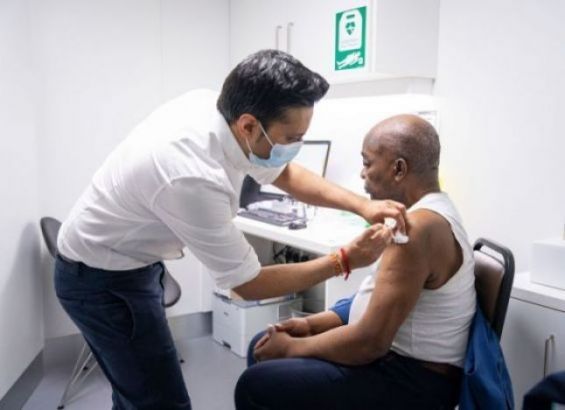A single dose of the AstraZeneca vaccine provides sustained protection against Covid-19 for at least three months, according to a study published by the Lancet. The findings confirm the recommendation of the British authorities, which suggested the delay of the second dose so that people in high-risk categories can receive their first shot of the vaccine.
«Vaccination programs aimed at vaccinating a large proportion of the population with a single dose, with a second dose given after a 3 month period is an effective strategy for reducing disease, and may be the optimal for rollout of a pandemic vaccine when supplies are limited in the short term», researchers wrote.
Vaccine efficacy after a single standard dose from day 22 to day 90 post vaccination was 76% and modelled analysis indicated that protection did not wane during this initial 3 month period, the study explained.
«After the second dose, efficacy was higher with a longer prime-boost interval: 82.4% at 12+ weeks, compared with 54.9% at 6 weeks», researchers wrote.
The findings «also support the policy recommendation made by the Joint Committee on Vaccination and Immunization for a 12-week prime-boost interval, as they look for the optimal approach to rollout», Professor Andrew Pollard, from the Oxford Vaccine Trial, said.
Transmission of the virus reduced by two thirds ?
The latest vaccine data, drawn from clinical trials in the UK, Brazil and South Africa conducted through December 7, also show the vaccine would reduce disease transmission by 67%.
Therefore, the study shows that a single standard dose of the vaccine reduces the positivity of the PCR by 67% and that after the second dose, the positivity of the PCR is reduced by 49.5% overall. To the researchers, these data indicate that ChAdOx1 nCoV-19 (AstraZeneca-Oxford vaccine) can have a substantial impact on transmission by reducing the number of infected individuals in the population.
Although no link between protection and vaccine has yet been defined, data presented on the relationship between antibody levels and efficacy suggest that humoral immunity may play a role, as does other immunological mechanisms, specifies the publication.
For the record, Morocco launched its vaccination campaign last week based on the AstraZeneca vaccine and that of China’s Sinopharm.





 chargement...
chargement...













